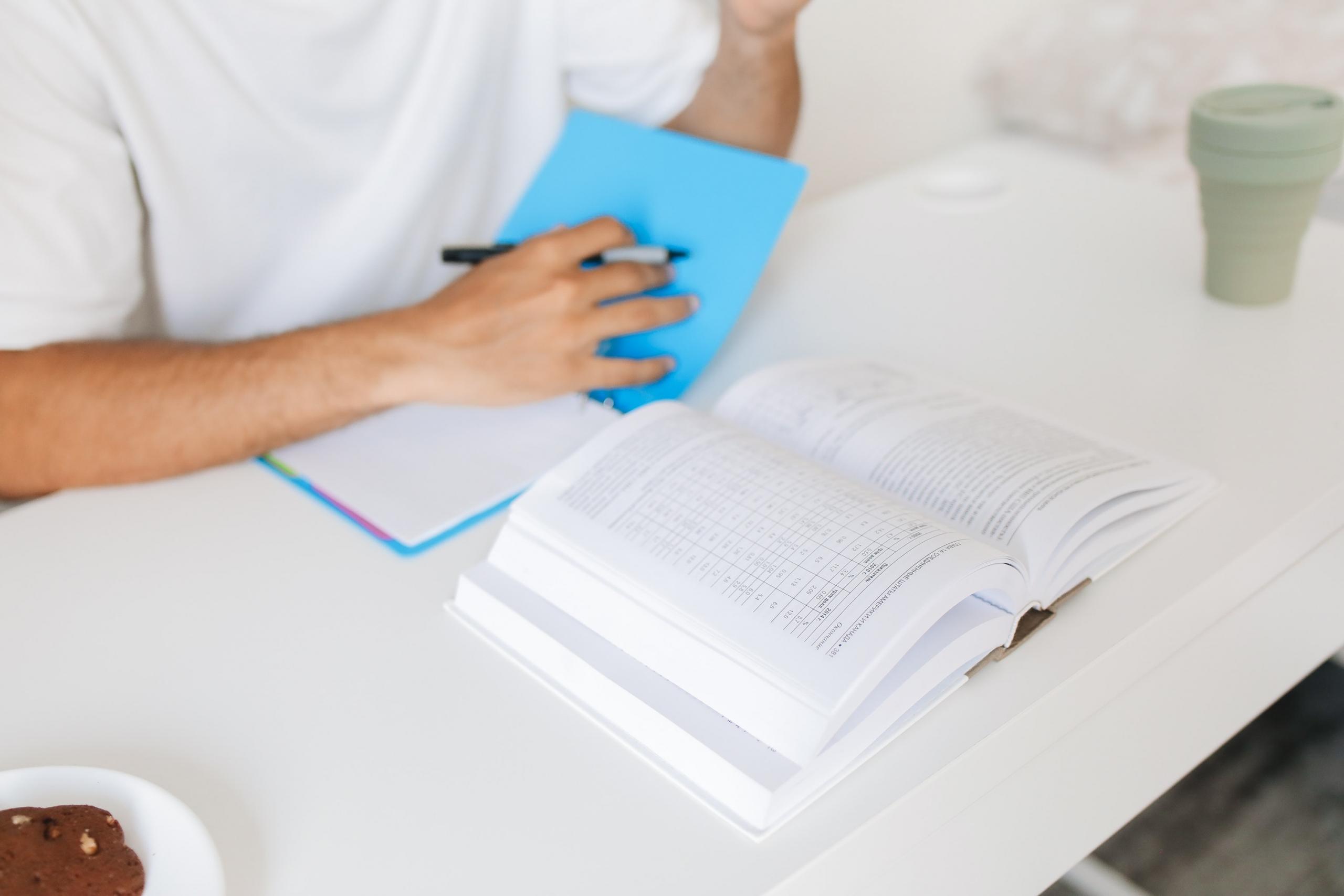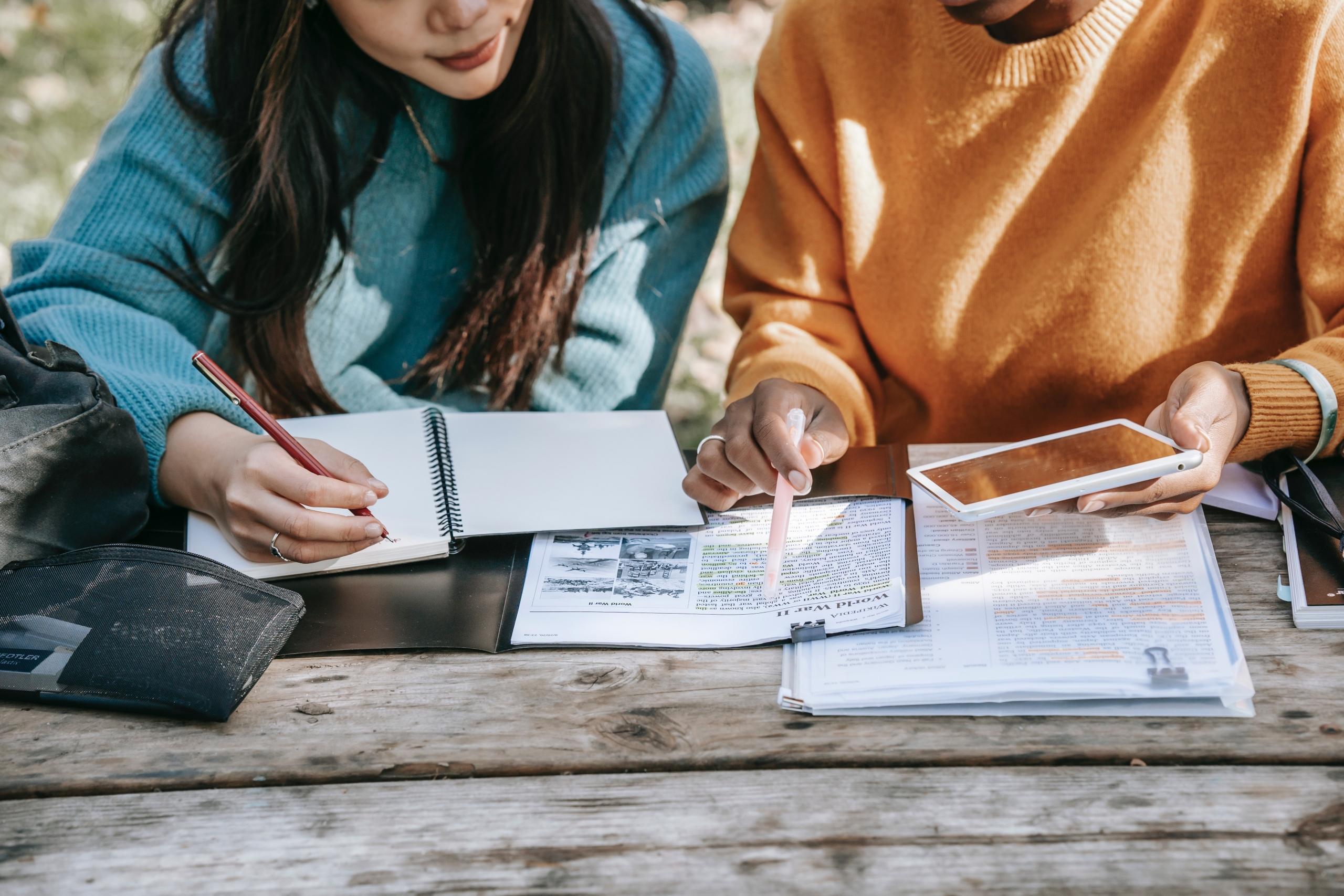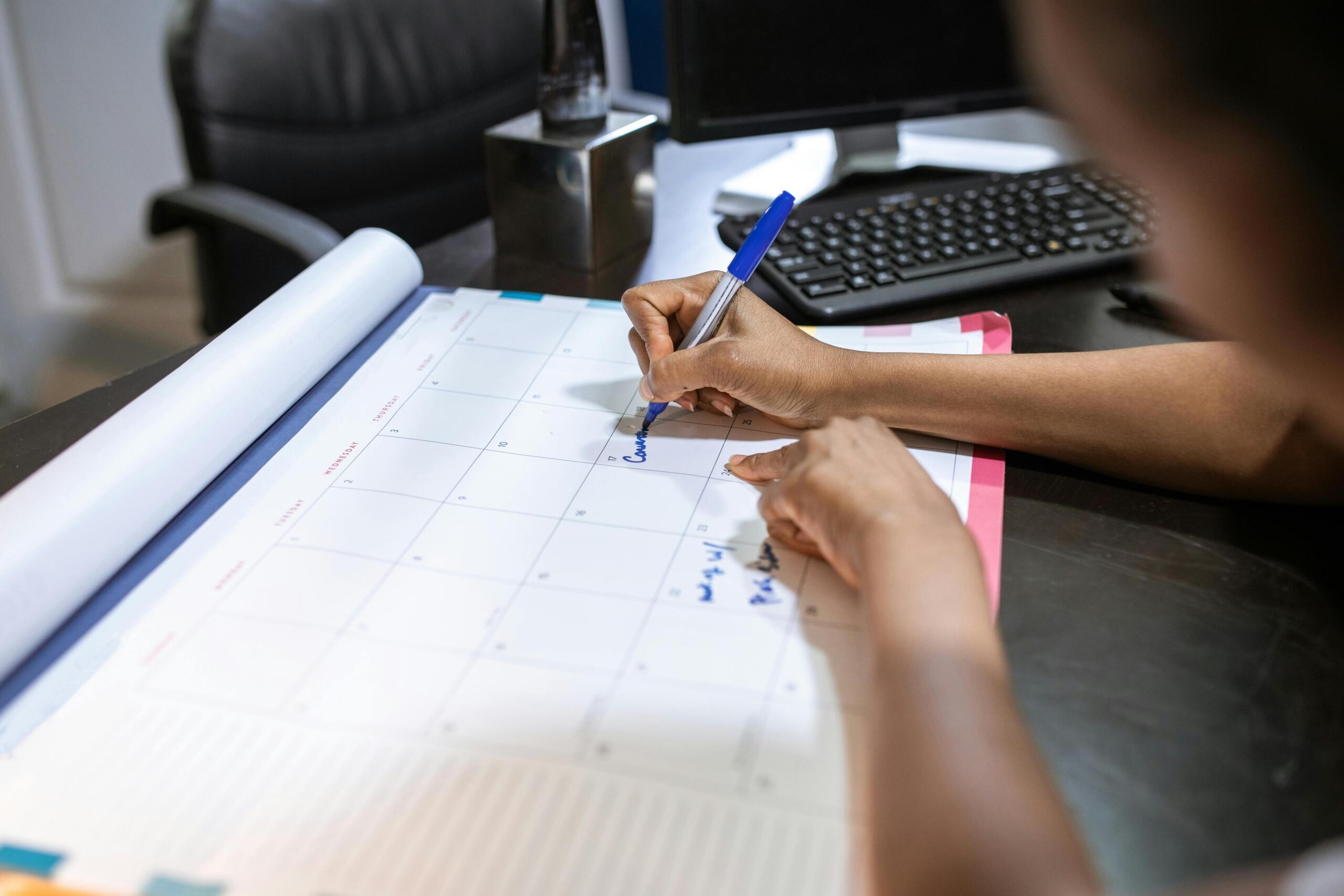“Half of what students learn in school is useful only during examinations.” Michael Bassey Johnson
An exam is an unusual thing that sets out to assess what we’ve learned and has us utilising portions of our brain we didn’t even know existed. Because the passing of exams is so critical to achieve a diploma or degree, students spend countless hours swotting for exams in the simple hope of passing or to come out ‘top of the class’.
Nevertheless, although it is necessary to study hard for examinations, not everyone finds it enjoyable, to say the least. Can that experience become any better? You bet your life it can!
When students equip themselves with the right attitude, commitment and planning, the whole idea of studying and acing an exam can become quite exhilarating! Tips, suggestions and proper techniques can definitely put you in the pound seat and make your experience fun!
Today’s article examines (there’s that word again) a number of pieces of choice advice to grasp the art of preparing for an exam. Let’s get to it!

How to Revise and Prepare for an Exam
Preparation for an exam, at the best of times, is just plain hard and tedious. Some simply say it sucks! It’s not necessarily intellectually challenging – it’s sometimes just so different to what you normally do and, so, requires quite a bit of adjustment on your part.
Do you know that there are techniques that you can use that can remove the tedium from this task?
You don’t?
Let’s have a closer look at ways to get down to the task of preparing for an exam in a much more structured, fun way.
Revise for an exam like a pro, with the exam studying methods below, which have been vetted by educational professionals:
- Quiz Yourself: Design small quizzes and test yourself regularly. These exercises quickly pinpoint any areas that require more attention, correct misconceptions, expand your knowledge and help you learn from your mistakes. Practice tests are also structured very much like official tests and this may be very useful in terms of preparing psychologically for your next exam. Ask your teacher for old exam papers and get an idea of how the questions are worded.
- Visual Aids: Visual learners have to review learning material visually. This they can do by making use of mind maps, webs, spider maps, chains, Venn diagrams and Sequential Thinking Method graphs.
- Make Use of Flashcards: There is no questioning that flashcards are very useful and diverse. They not only keep revision sessions interesting, but are also very good at activating memory, something which is dealt with in greater depth later on!

So, don’t hesitate! Start putting into practice some of the above-mentioned revision methods to give your exam preparation one almighty super-charge!
15 Awesome Study Tips for Exams
We live in a technological and information age, where information is available to you virtually anywhere. So, there is an extensive array of tricks and tips obtainable which cover a wide range of topics. Is this true of studying too? Can a serious student readily find helpful, easily accessible advice that is reliable? You bet your bottom dollar they can!
The gurus at Superprof have searched far and wide to come up with 15 tips to aid students in their preparations for upcoming exams. For instance? Below follow 15 pointers to help you ace any exam:
- Design a Study Schedule
- Have a Plan for Exam Day
- Put Together a Study Team
- Schedule Several Short Breaks
- Rewrite Your Class Notes/ Create Study Notes
- Have Available Several Coloured Pens (or Highlighters)
- Make Time to Enjoy Life
- Have a Dedicated Workspace
- Find Useful Articles Online
- Check out Youtube Video Clips
- Turn That Darn Phone OFF
- Drink Sufficient Water
- Eat well (healthily)
- Use Visual Aids
- Get Enough Sleep
Below we elaborate on some of these study tips for exams in greater detail. A far greater insight is also given in several follow-up articles.

How to Design a Revision Schedule
Time management is not easy. In fact, the correct statement is that you have to learn to manage yourself within a given time-frame.
So, start to practise this as early in the academic year as you can. It is always going to be tough to squeeze in all the studying you have to do if you leave it for when exams are right upon you. Start as soon as a school year commences, by making study notes on a daily basis. That will obviate a lot of stress when exam season comes around!
If, however, you’ve passed up the opportunity to do that, will need to learn how to allocate time to specific topics so that you don’t spend an inordinate amount of time on one topic or subject and not enough on another!
This is where the importance of creating a revision schedule comes in. Nice sounding, right? But, how exactly does one go about designing such a tool, so that it can readily be followed and makes sense?
Let’s get to that question by, firstly, listing the steps to be followed in the creation of a review schedule:
- Decide on Your Goals
- List Everything That You Have to Revise for Your Exam
- Prioritise the Topics and Divide the Time Accordingly
- Decide on Learning Methods for Different Topics – Pencil Them In
- Plan Some Recreation Time
- Remain on Task Even When Distractions Arise
Improve Your Memory While Studying – Here’s How

Do you tend to forget far too easily? If that is so, you’re not alone!
Forgetfulness is a condition that is affecting far more young adults and youths these days than has been the case ever before. Should this be alarming? Not in all cases, since there are many reasons for a person to be forgetful and, encouragingly, there are a raft of tips for memory improvement. For example?
Let’s first have a look at why young folks seem to be afflicted by forgetfulness and can’t keep track of important things. The causes are many – surrounding distractions causing mental overload, the general lack of utilising newly acquired information and a negative perception of your ability to remember things. These all contribute to why young people nowadays struggle to remember things. There is so much going on in the lives of adolescents and young adults that forgetfulness is becoming quite common.
It is, however, necessary to say that, generally speaking, forgetting where you’ve placed your earphones or phone charger should not be taken too seriously! Life happens, right? It is, on the other hand, rather disconcerting when you can’t recall key concepts that you will be tested on later!
The question, thus, arises: what studying methods for exams can one employ, and are there tips for memory improvement?
Yes, there are. Here are some suggestions:
- Talk About Your Learnings: Don’t keep all the varsity-level information to yourself; communicate it to friends and family. This, not only contributes to making more people knowledgeable, but also contributes to your remembering the subject content so much better. Repeating difficult concepts, that you don’t fully understand, is highly recommended. Talking about things always helps to cast a light of understanding on them!
- Convert Your Notes to Drawings: Use drawings to illustrate your notes. This adds an element of fun to your learning. Little images have been known to prod people’s memories as they connect the drawing to a fact, such as a historical date or event or a topic in geography. Also make use of detailed notes or flashcards to accompanying your drawing. This is definitely one activity you want to try … and it works!
- Make Use of the Loci Method: There are a number of methods available to help one remember information. This method is one of the oldest memorisation tools around. It is based on connecting items to be remembered to places you know (e.g. your childhood home) or points on a route that you are familiar with. This makes it easier for you to recall the items of information as you mentally “walk” the route. Give a thought to the Loci method, which is really helpful for visual learners!
By utilising some or all of these tips for memory improvement, you will be better able to make sense of difficult concepts that may feature in your next exam!
Now, let’s turn to another method: the utilisation of flashcards. Can they help with exam preparation? Sure, they can! Find out more below.
Flashcards for Better Study!
Flashcards are a great way to study! There’s no doubt about it!
There are of course flashcards available for purchase, but nothing beats creating your own. You would have given thought to the creation of each individual card, which activates neural pathways, which will enable you to retrieve the information better when the need arises.
Old-fashioned flashcards are great for tactile learners, who will benefit tremendously from having themselves created these reminders out of sturdy card and decorated them in pencil or ink and in different shades, which make the information pop out at them!
We now turn our attention immediately to how best to make use of flashcards to jog our memory:
- Set a Time Limit: very often students become overwhelmed by the volume of work which they have to study. When revising with flashcards, it’s far better to set a time-frame for your periods of study and build in regular short breaks. This should be seen as coming-up-for-air moments. These breaks give you time to relax and unwind, so that you can return to your focus of study refreshed. The same applies to the use of flashcards: their over-use can cause them to lose their shine. Used judiciously and irregularly (not continuously with every topic), they will serve you well and never lose their lustre!
- Break Down Key Points: because of their small size, flashcards don’t have sufficient space for large amounts of information. It is, thus, recommended that you break down comprehensive topics onto several flashcards. This will contribute to a far greater organisation of subject matter and prevent students from feeling overwhelmed!
- Be Realistic: a great way to utilise flashcards is to write an idea or question on one side and the answer on the other. Then, frequently review this information. Remain realistic: know that you won’t get all the answers right at the outset! However, realise that it will take time and continuous practice for you to improve and become quietly confident! Stay patient, focused and balanced!
No matter what route you follow when studying, we want to remind you that flashcards have been the go-to method for students over many, many years!
10 Tips to Reduce Stress During Exams

Many a student has been there: the point where we know the exam is upon us and all we want to do is procrastinate – put off the studying until … well, later! Some become quite anxious and the procrastination doesn’t help in the least!
You are not alone where this is concerned! But, hold on, there is help available! There are several ways in which to deal with the stress caused by imminent exams.
Below we have put together 10 tricks and tips to reduce stress during exams:
- Have a zone earmarked for study
- Hide your phone from yourself
- Hook up with a study buddy
- Structure a solid revision timetable/schedule
- Identify and focus on important facts
- Work through past exam papers
- Schedule frequent breaks – to help you calm down
- Get sufficient sleep
- Get in some physical exercise
- Open up to a trusted friend, parent, teacher or personal tutor
To conclude, let us remind you that your success will depend on the amount of effort that you put in over the course of the year. Don’t leave all the studying for the night before the exam! If you want to enter the exam room confident and calm, make sure that you work consistently throughout the year and create study notes daily, if possible! Go! Do it! You’ve got nothing to fear!
Summarise with AI




















